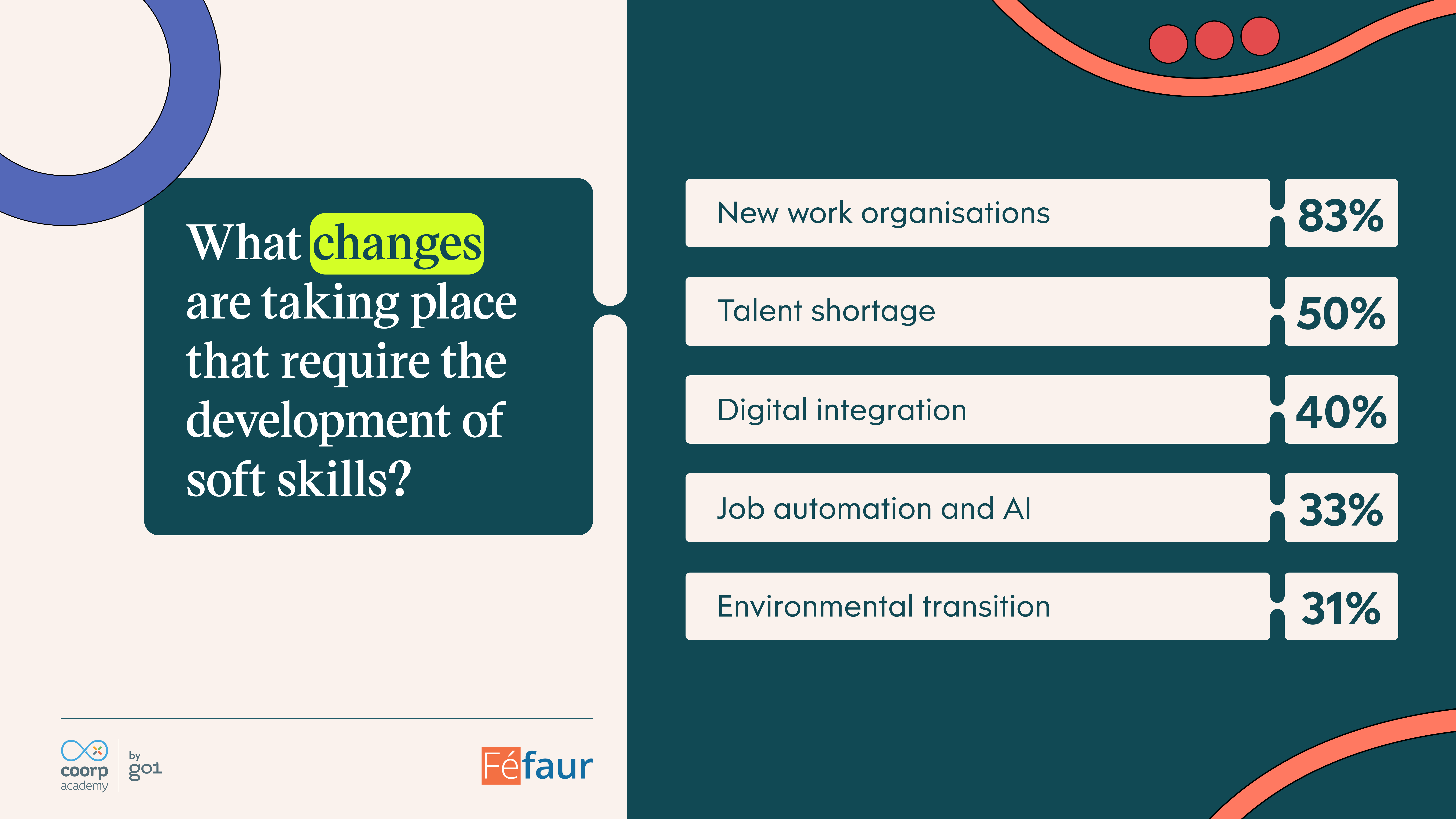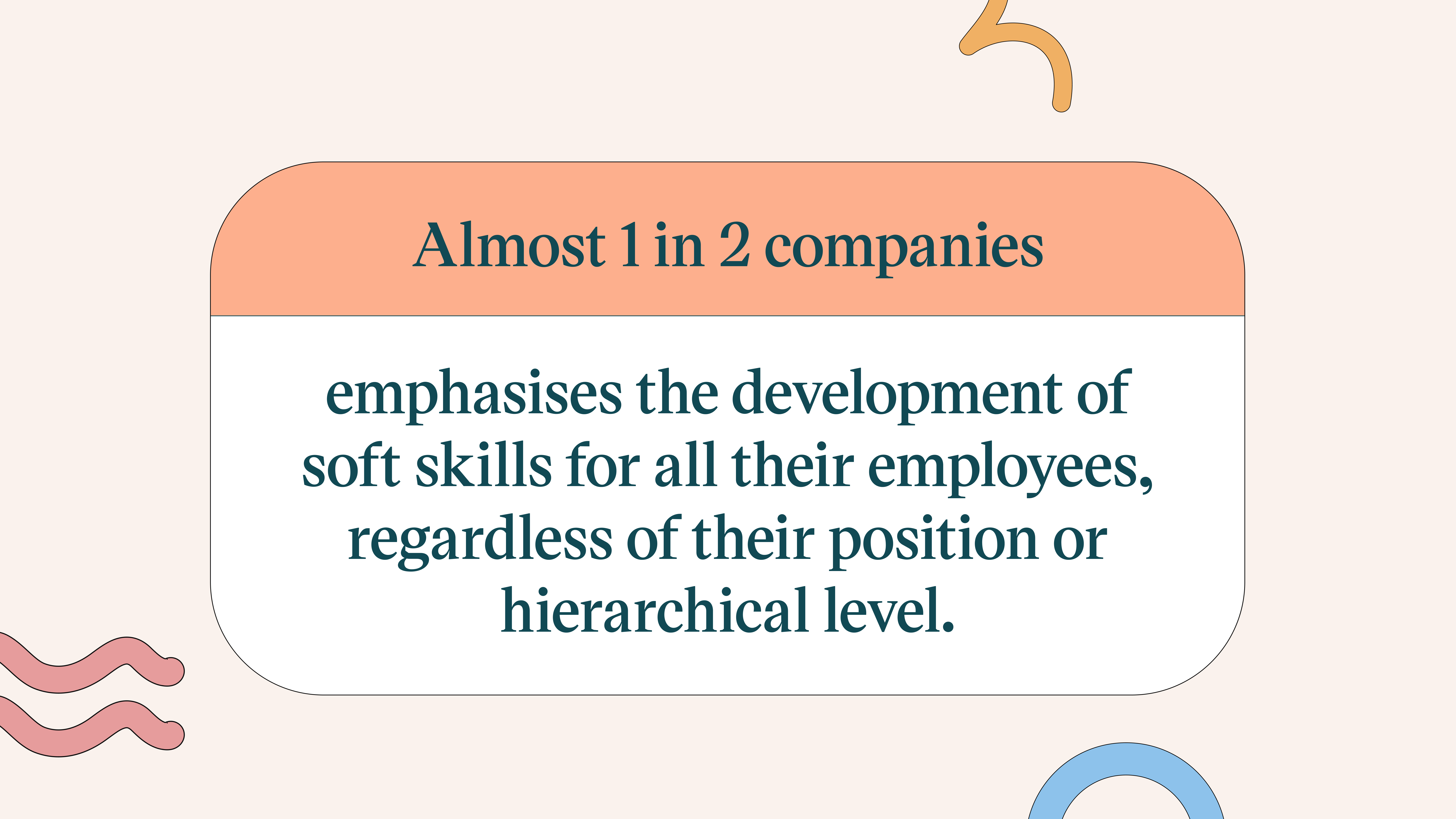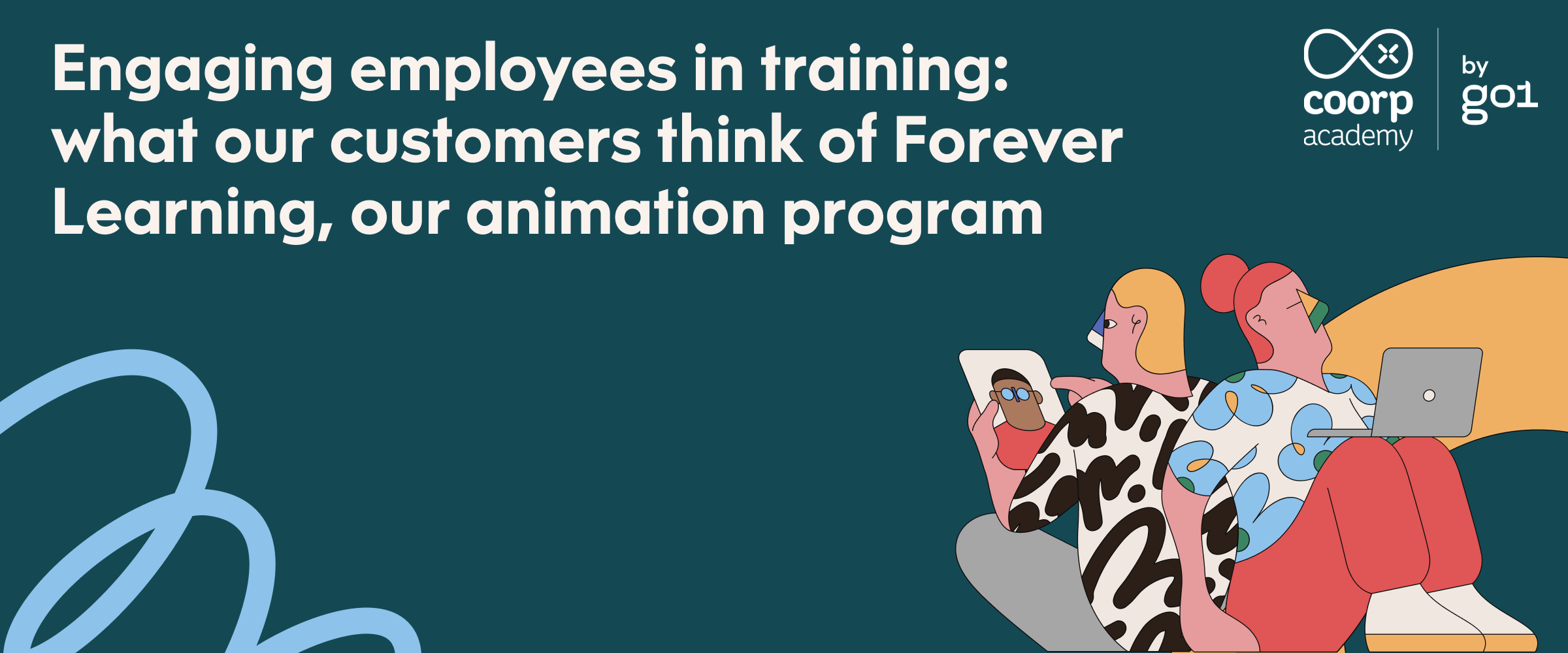“Soft skills training, a question of survival for the company? – what HR-learning managers think
Learning Innovation
Over the last few months, we have put on our investigator’s hat… Several hundred French HR directors and training managers have responded to the Coorpacademy by Go1 survey in partnership with the Féfaur consultancy firm on the strategies they are implementing to develop soft skills in their company.
French companies are undergoing major changes (arrival of new AI, digitalisation and new forms of hybrid work) and to survive in this new environment, soft skills have become essential. In this article, we give you the 3 key points to remember from our study.
1. Soft skills: the first lever for adapting to new forms of hybrid work

Soft skills are crucial for companies, which see them as the key to cope with changes in the world of work and attracting the talent they need to succeed. 83% of HR-training managers mention new work organisations as their main concern and reason for developing soft skills. Communication skills, problem solving and initiative taking are valuable assets to adapt to the changes taking place in the company.
The talent shortage, in second place (50%), is also a reason why soft skills are essential. Companies find it difficult to recruit and retain employees with the right skills, especially soft skills such as teamwork, problem solving and taking initiative. Communication skills are also in high demand.
Finally, for nearly 45% of the HR training managers surveyed, digital transformation is their main concern. Employees must acquire new skills and adapt quickly to technological tools. The ability to learn quickly, creativity, time management and adaptability are essential skills to meet the challenges of this transition.
2. Soft skills: not just for managers!

According to the Coorpacademy by Go1 x Féfaur survey, almost half of companies (49%) now prioritise the development of soft skills for all their employees, regardless of their position or hierarchical level. This trend reflects a growing awareness of the benefits of soft skills, which can benefit the whole team and help the company grow as a whole. The other half of companies have yet to be convinced that they would benefit massively from such training at all levels. Every employee can benefit from learning these skills to improve their performance and well-being at work.
At the managerial level, 65% of companies think that soft skills are absolutely essential when it comes to recruiting or promoting a manager. It is indeed key to ensure that managers have the necessary skills to lead their teams well.
3. Digital Learning: a key lever for developing soft skills

Digital learning is a popular tool for soft skills training, thanks to its flexibility, accessibility, customisation and skills tracking. Training and HR managers welcome the potential of digital learning to increase access to soft skills training and break down traditional barriers. The variety of formats offered and the adaptability of this tool are also appreciated by the learning & development (L&D) professionals interviewed. The customisation of training according to the feedback and evolution of employees is considered important by 46% of respondents. The social and collaborative dimension of digital learning is also valued by 25% of respondents, encouraging the exchange of knowledge. Finally, 20% of respondents emphasise the possibility of evaluating the effectiveness of training and the transfer of skills acquired in the professional environment thanks to the monitoring of soft skills in action.
To conclude, the results of the Coorpacademy by Go1 x Féfaur survey highlight the growing importance of soft skills in companies and their impact on the overall performance of the organisation. HR training managers are looking to integrate these key competencies into continuous training programmes as well as using digital learning tools to provide flexible, personalised learning experiences tailored to individual needs. This learner-centred approach to training promotes the acquisition and development of the soft skills that are essential for success in a constantly changing business world. Let’s put our investigator’s hat back on and get back to our core business: supporting people in developing their skills through digital learning.
Would you like to know more about our Digital Learning offer? Meet our experts in a demo of our solutions by clicking here.


